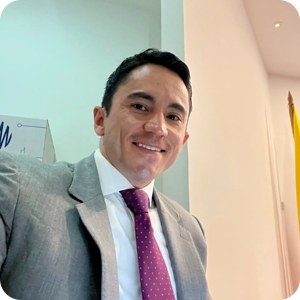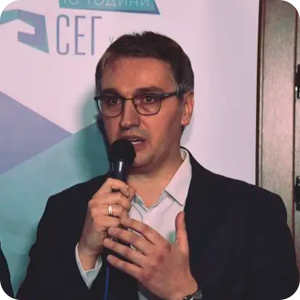Long and disputed debates, followed by headlines and social media cuts, more liberty versus more conservatism, “all are welcome” versus “all go home”—the list can go on when it comes to the presidential elections that took place this autumn in the USA. Trump’s second term has worried the international development community, now preparing for a radical shift in U.S. policies. Experts are predicting a change in the country’s priorities, both internal and external. Some fear that Trump’s administration will cut the aid budget and stop supporting Ukraine. We have asked international development experts about their expectations. Check some opinions below.
Key Takeaways:
- Donald Trump has been elected as the 47th president of the United States, defeating his Democratic opponent, Kamala Harris, in the presidential election on Tuesday, November 5, 2024. The official inauguration is scheduled for January 20, 2025.
- Experts consider that a second Trump administration would shift U.S. international development priorities, distancing itself from justice for illegal immigrants, and the protection of family and minors’ rights.
- A second Trump term would likely see the U.S. withdrawing from the Paris Agreement once again, reinforcing Trump’s skepticism about climate change.
- It is also expected that there will be diplomatic mediation, especially with Russia, and a reduction in U.S. financial support for Ukraine’s war efforts.
- His presidency would likely increase protectionism through tariffs, particularly targeting countries like Mexico while encouraging domestic economic reactivation.
- Trump’s “America First” strategy would lead to more restrictive trade terms through bilateral agreements, limiting opportunities for emerging markets.
DevelopmentAid: How might a second Trump administration influence U.S. funding priorities for international development?

“The arrival of Donald Trump as the 47th president of the United States will distance the country from the agenda developed under international development policies pursued by the Biden administration. The issues that will be prioritized are: citizen security, family protection, and others. Perhaps one of the Trump administration’s bets to promote international development is the strengthening and implementation of multiple RISE projects, whose acronym invites us to rebuild, invest, sustain, evolve, which in English also means “standing up”. In this way, it is possible to seek the promotion of economic development in beneficial conditions for mining communities, for example. Since development does not depend only on commercial and economic activities, it is likely that the Trump administration will focus on strengthening democratic institutions, trade, and negotiated conflict resolution.”

“Whilst in his first term, he changed the outlook from democracy and human rights to economic development. It may happen that he cancels USAID.”
DevelopmentAid: Given the previous withdrawal from the Paris Agreement under Trump, how might environmental programs be affected in a second term?

“President-elect Donald Trump has denied the fatalistic narrative that has been constructed about climate change, and consequently withdrew the U.S. from the Paris Agreement during his first term and has promised to do so again in his second term as president. Here it is important to highlight that although the United States is a relevant actor in terms of gas emissions and pollution caused by its productive apparatus, this autonomous decision of the U.S. government should lead other countries committed to these objectives to continue working on this purpose of keeping global warming below 1.5 degrees Celsius.”
DevelopmentAid: How will these election results affect wars in Gaza, Ukraine and Sudan?

“Regarding the military conflict between Russia and Ukraine, Trump has already initiated agreements with Putin to propose a de-escalation of the conflict, and although these approaches are given through public messages from both sides, unofficially, they allow us to preview the end of U.S. financing of Ukraine for the maintenance of the war. With regard to Israel, it is most likely that, on the one hand, the United States will continue to provide it with its unconditional economic and military support and, on the other hand, it will be able to mediate diplomatically with the Arab countries that attack Israel to try to pacify political and military tensions in the Middle East. Regarding the civil war in Sudan, it is very possible that the Trump administration will make diplomatic and mediation efforts to resume talks with the United States as a mediating country, together with Saudi Arabia, to bring the two parties in conflict closer together to achieve a negotiation and reach a cease-fire to end the war in the African country, in which the dispute for territorial control and political power between the Sudanese Army and the Rapid Support Forces (RSF) does not seem to find a definitive solution since the escalation of the conflict in 2021.”

“Soon, by the end of 2025, there will be agreements to stop the war, at least in Ukraine. I don’t see that happening for Israel, Gaza, Lebanon, and others.”
DevelopmentAid: How might a second Trump presidency affect U.S. commitments to the United Nations Sustainable Development Goals (SDGs)?

“As he explained before at the UN Assembly in September 2018, Donald Trump is against “the ideology of globalism.” When analyzing his speeches, it is obvious that, for him, the SDGs have been inserted globally as a strategy of coercion devised by the radical left with objectives very different from their explicit content. Hence, they are largely considered global objectives that often go against national or patriotic interests, especially those of the United States, so it is not to be expected that he will support these objectives, the application of which implies the materialization of progressive ideas alien to the interests of the majority of the American electorate. His commitment to the Sustainable Development Goals may focus on the following goals: 1. No Poverty, 2. Zero Hunger, 4. Quality Education, 8. Decent Work and Economic Growth, 9. Industry, Innovation and Infrastructure, 16. Peace, Justice and Strong Institutions, and 17. Partnerships to Achieve the Goals. This is with the purpose of somehow improving the conditions that generate the migration of thousands of people from their states. What is not expected is that the Trump administration will support the other objectives, clearly aligned with the progressive and woke agenda proposed by the international left worldwide.”
DevelopmentAid: What impact might this presidency have on U.S. trade policies that affect emerging markets?

“For the United States, all areas of government are integrated and respond to objectives of national interest. Thus, it is likely that different tariff distinctions will be established with respect to different countries from emerging economies, as is the case with Mexico, a country bordering the United States, which has already been warned that if it does not present positive results in the fight against drug trafficking structures and illegal migration, tariffs on its products will increase by just over 20%. However, an economic reactivation is expected that improves the consumption capacity of the American people, and this can improve the indicators of consumption of products and services by households and companies, improving in some way the volume of U.S. imports, benefiting exporters from emerging countries.”

“A new term for Donald Trump could reinforce American protectionism, impacting emerging markets in several ways. Possible tariff increases would aim to protect American industries, making access to the U.S. market more expensive for these countries. By encouraging the relocation of supply chains to the United States, Trump would also limit employment and growth opportunities in emerging countries that rely on American outsourcing. Moreover, Trump’s preferred bilateral agreements would be negotiated to favor American interests, pushing emerging markets to accept more restrictive trade terms. On the monetary front, stricter American economic policies could strengthen the dollar, making U.S. imports more costly and creating volatility in the currencies of emerging countries. Additionally, restrictions on the export of raw materials, such as oil and metals, would directly affect economies dependent on these resources. In response to these challenges, emerging markets might be forced to diversify their trade partnerships and invest more in local production to reduce their reliance on the United States.”

“It is simple for Trump, America First will be the dominant strategy. “You work with us or against us” when it comes to precious commodities, lithium or whatever. I can see many bilateral agreements between the U.S. and individual countries taking place.”
See also: Working with USAID. Tips for junior professionals | Experts’ Opinions
With a second Trump presidency, the international development sector faces many uncertainties. However, now is the best time for professionals to secure a post in the sector. The chances of landing a good position are higher with the relevant tools at their disposal. With the Individual Professional Membership, it’s easier and faster to navigate through different opportunities thanks to access to the largest job board in the sector, tenders and grants for individuals, donor and organization contact information, and many more.

